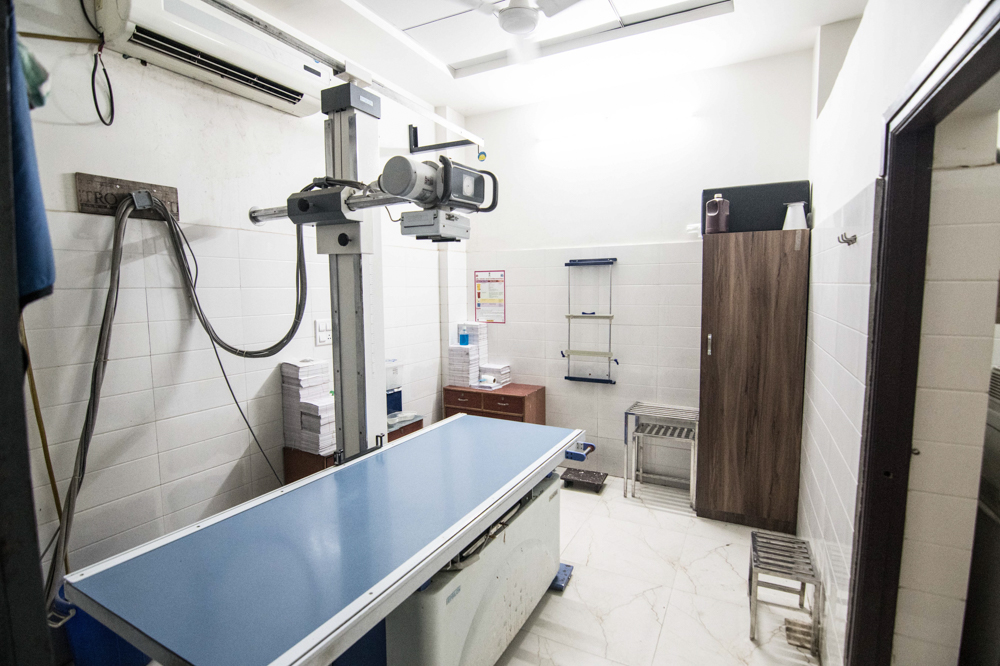Expecting a baby is a joyous journey filled with excitement and anticipation. However, ensuring the baby’s health and proper development remains a top priority for parents and healthcare providers. One of the most effective and non-invasive tools for monitoring fetal growth and detecting potential health concerns is ultrasound, also known as sonography.
Ultrasound provides real-time imaging of the baby, offering valuable insights into fetal development, placental health, and overall pregnancy progress. This essential diagnostic tool allows healthcare professionals to assess growth patterns, detect abnormalities, and ensure a safe pregnancy experience for both mother and baby.
If you are looking for reliable Radiology Services in Kota, Dr. Vaya’s Lab offers advanced ultrasound technology for precise and accurate prenatal diagnostics.
Importance of Ultrasound in Pregnancy
Ultrasound plays a critical role in prenatal care, offering multiple benefits for both the mother and the baby. From confirming pregnancy to monitoring fetal growth, it is an indispensable part of medical checkups during all trimesters.
1. Confirming Pregnancy and Checking Viability
Ultrasound is typically the first step in confirming pregnancy. It helps establish important details such as:
- The presence of a gestational sac
- Fetal heartbeat detection (as early as six weeks)
- Estimation of due date based on fetal measurements
2. Monitoring Fetal Growth and Development
Regular ultrasounds help track the baby’s growth to ensure it aligns with expected milestones. Some key measurements taken during these scans include:
- Crown-rump length (CRL) in early pregnancy
- Head circumference and biparietal diameter (BPD)
- Abdominal circumference and femur length
These measurements help doctors assess whether the baby is growing at a normal rate and detect any signs of growth restrictions or abnormalities.
3. Detecting Congenital Conditions Early
One of the most important advantages of ultrasound is its ability to identify congenital conditions or developmental anomalies in the baby. A detailed anomaly scan (typically done between 18-22 weeks) checks for conditions such as:
- Neural tube defects (e.g., spina bifida)
- Congenital heart defects
- Cleft lip and palate
- Chromosomal abnormalities such as Down Syndrome
Early detection allows for better medical management, specialized care, or potential interventions.
4. Assessing Placental Health and Amniotic Fluid Levels
The placenta plays a vital role in providing oxygen and nutrients to the baby. Ultrasound helps monitor placental function and detect complications such as:
- Placenta previa (when the placenta blocks the cervix)
- Placental insufficiency (poor blood flow to the baby)
- Excess or low amniotic fluid levels, which can indicate potential complications
Regular scans ensure that both the placenta and amniotic fluid levels are adequate to support a healthy pregnancy.
5. Determining Baby’s Position and Movement
As the due date approaches, ultrasound helps determine the baby’s positioning inside the womb. Some positions that doctors monitor include:
- Cephalic (head down) – Ideal for a vaginal delivery
- Breech (feet or buttocks first) – May require medical intervention
- Transverse (lying sideways) – May require a C-section
By assessing fetal position, doctors can decide on the safest delivery method for the mother and baby.
6. Detecting Multiple Pregnancies
Ultrasound is the most accurate way to detect multiple pregnancies (twins, triplets, etc.). It helps monitor each baby’s growth, assess whether they share a placenta, and detect potential complications such as twin-to-twin transfusion syndrome (TTTS).
7. Providing Reassurance to Expecting Parents
For parents, seeing their baby’s heartbeat and movements on the screen is an unforgettable experience. Ultrasound offers emotional reassurance and strengthens the bond between parents and their unborn child.
Types of Ultrasounds During Pregnancy
Different types of ultrasounds are recommended at various stages of pregnancy for specific diagnostic purposes.
- Transvaginal Ultrasound (Early Pregnancy) – Provides clearer images during the first trimester.
- Standard 2D Ultrasound – The most commonly used imaging method for fetal monitoring.
- Doppler Ultrasound – Assesses blood flow in the placenta and umbilical cord.
- 3D & 4D Ultrasound – Provides detailed images of the baby’s face and movements.
- Fetal Echocardiography – Evaluates the baby’s heart structure and function.
Frequently Asked Questions (FAQs)
Q1: How many ultrasounds are needed during pregnancy?
A: Generally, at least two ultrasounds are recommended: one in the first trimester and another around 18-22 weeks. Additional scans may be required based on medical needs.
Q2: Is ultrasound safe for the baby?
A: Yes, ultrasound is considered safe when performed by trained professionals. It uses sound waves, not radiation, making it a non-invasive and risk-free diagnostic tool.
Q3: Can ultrasound determine the baby’s gender?
A: Yes, gender determination is possible around 18-20 weeks, but accuracy depends on the baby’s position during the scan.
Conclusion
Ultrasound is an essential part of prenatal care, providing valuable insights into a baby’s health and development. It ensures that potential concerns are addressed early, offering peace of mind to parents and healthcare providers.
If you’re expecting, following your doctor’s recommendations for ultrasound checkups is crucial for a healthy pregnancy.
For expert Radiology Services in Kota, visit Dr. Vaya’s Lab, a leading Diagnostic Centre in Kota offering state-of-the-art ultrasound technology and reliable diagnostic solutions. Book your ultrasound appointment today for the best prenatal care!




